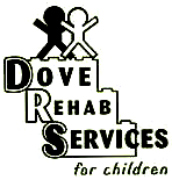Parents may want to know that there is a developmental sequence for introducing visual motor integration basics to children who have deficits in this area. The sequence begins with having a steady base of support that acts upon a stationary target. (i.e. an infant holding onto a bottle with both hands while sucking). The progression develops so that the child can reach for moving
Learn more
Self–regulation is the ability to monitor and control one’s own behavior, emotions, or thoughts, altering them in accordance with the demands of the social and physical environment. The 4 main components of self-regulation have been referred to as the 4 A’s of infancy: Affect Attention Action Set Arousal The disordered quality of any one of these factors is most easily seen during infancy through the
Learn more
Parents: Because the vestibular system is one of our most primitive sensory systems, it is connected to other basic systems necessary for survival on a reflexive level. This means that your child does not even have to think about key responses when the vestibular system is activated. The vestibular reflexes serve to tie in vision, language and postural reactions on an automatic basis. This
Learn more
Tactile processing is the ability to detect and interpret touch sensations arising from the skin, muscles and joints. This is a key component of body scheme, the cognitive awareness of the organization of body parts. This is one of the largely “hidden” senses we use in daily living skills when touch, rather than vision is used to guide our actions. Skills such as oral
Learn more
